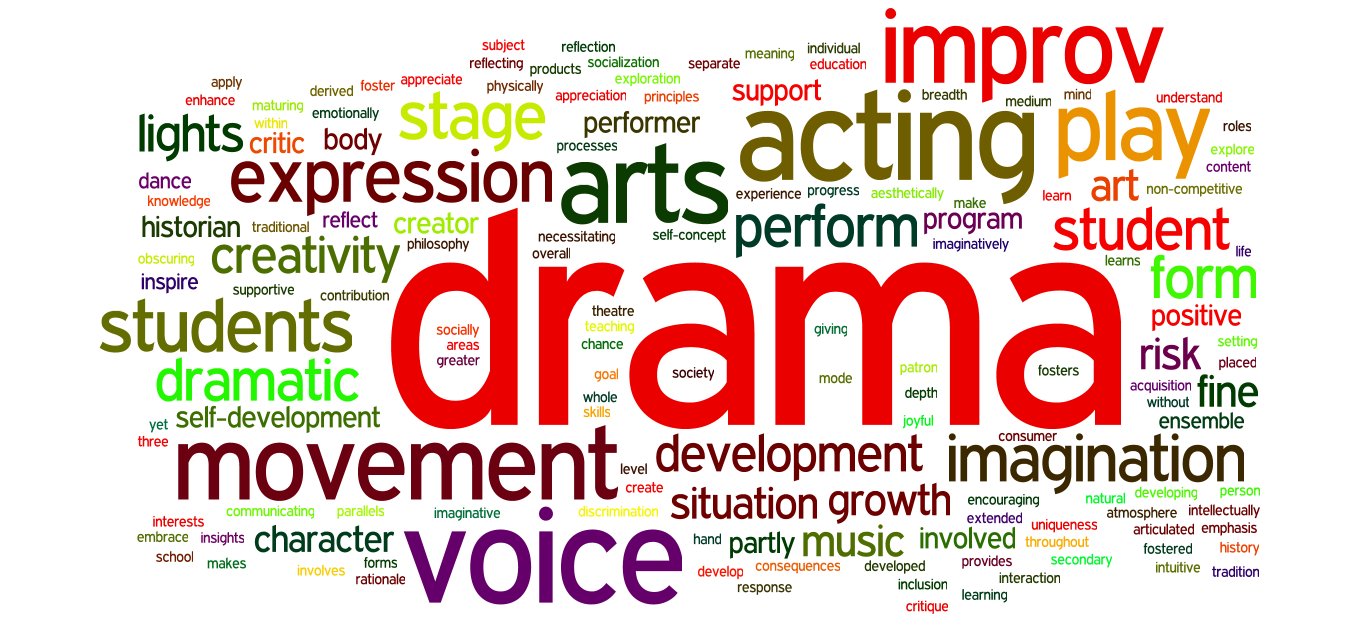Back to: LITERATURE IN ENGLISH SS1
Welcome to class!
We are thrilled to have you in our class!!
In today’s literature in English class, we will be talking about drama. Enjoy the class!
Drama

A brief overview of drama
This literary genre is often also referred to as a play and is performed in front of an audience. It is a literary work meant to be performed on stage by casts/actors or actresses. Dramas are written through dialogue and include stage directions for the actors to follow. The characteristics of drama are: It is written in acts and scenes; it is acted or performed on stage by actors and actresses; It has a prologue and an epilogue; The dialogue between characters is made up of sentences; It makes use of dialogue among characters to convey its message to the audience; It makes use of costumes and props.
The Importance of Being Earnest by Oscar Wilde would be considered a drama because it is written through dialogue in the form of a script that includes stage directions to aid the actors in the performance of the play.
Types of drama
In literature, there are three forms/kinds of drama and they include the following:
- Comedy
- Tragedy and
- Tragi-comedy
Comedy:
This is a type of drama which is characterized by its humorous or satirical tone and depicts amusing people or incidents, in which the characters ultimately triumph over adversity. There are various types of comedy such as parody, satire, comedy of manners, romantic comedy, farce, burlesque, among others. An example of a comedy is Oliver Goldsmith’s She Stoops to Conquer.
Tragedy:
In the ancient Greek world, comedy was considered the opposite of tragedy, and these were the two main genres in Greek literature. Tragedies were stories of human failure – the hero was always killed or destroyed in the end, usually through his human flaws and psychological weaknesses. The tragedy is a type of drama that treats a serious subject about human suffering or a terrible event in a dignified style in the life of a hero, whose “tragic flaw or hamartia” leads to his/her downfall and has an unhappy ending. It also invokes “pleasure or catharsis” in its audience. An example of this is William Shakespeare’s tragedies such as Hamlet, Othello, Macbeth, Julius Caesar, King Lear and so on.
Tragi-Comedy:
This type of drama combines the elements of or is a mixture of both the type of drama known as the comedy and tragedy. It is also seen to be described as either a tragic play which contains enough comic elements to lighten the overall mood or a serious play with a happy ending. An example of this is William Shakespeare’s The Merchant of Venice.
Evaluation
What are the key characteristics of drama in literature?
Reading Assignment
What is the difference between a tragedy and a comedy in drama?
Weekend Assignment
How does stage direction contribute to the overall meaning of a dramatic work?
We hope you enjoyed today’s class.
Let us know your thoughts and questions in the comment section, and we will attend to them as fast as we can.


Wow this is amazing
Classnotes has been really helpful to me,but why can’t I get the app on my phone?